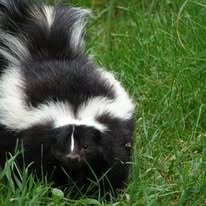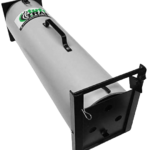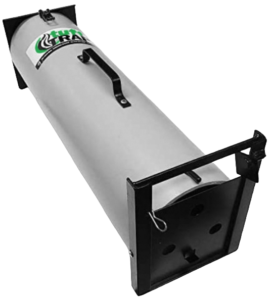Understanding Skunk Breeding Season And How To Protect Your Property

Understanding Skunk Breeding Season
As the chill of winter approaches long into spring, skunk breeding season rapidly approaches. During this time, these nocturnal creatures will be on the lookout for breeding den sites—safe, enclosed, dark areas where they can establish a temporary home as they prepare to expand their family. If left unchecked, a single location can become a hotspot for skunk activity. I’ve personally caught as many as 13 skunks from one location, and I’ve heard reports of up to 21 skunks being removed from a single site during the breeding season.

Recognizing Skunk Activity
Other than the undeniable smell, one telltale sign of skunks in your area or under your home or business, is the sound of squealing or loud scuffling at night. Many people mistake these noises for baby skunks, but it’s often males fighting over a female. These territorial battles can be loud, disruptive and smelly, but they’re a natural part of skunk breeding behavior.
How to Keep Skunks Away
If you suspect skunks are scouting out your property for a den site, the best course of action is to regularly inspect your perimeter for holes under the foundation, skirting, or slab and discourage the skunks as much as possible. Harassment and baited traps often times do not work during this time of year. Here are some tips:
- Eliminate Attractants: Ensure that your yard is free of food sources like pet food, birdseed, or trash. Skunks are opportunistic feeders and will be drawn to easy meals.
- Secure Potential Den Sites: Inspect your property for areas that might serve as ideal den locations, such as under porches, decks, sheds, or crawl spaces. Seal off these entry points with sturdy materials like hardware cloth.
- Use Lights and Noise: Skunks prefer dark, quiet spaces. Motion-activated lights or noise-making devices can deter them from settling in.
- Contact Professionals: If skunks have already made themselves at home, it’s best to call a licensed wildlife control specialist. Attempting to remove skunks yourself can be risky.
The Dangers of Rabies
One critical reason to avoid close encounters with skunks is their potential to carry rabies. In our state, skunks are the highest carriers of this deadly virus. Rabies is transmitted through saliva or spinal fluid, meaning a bite from a rabid skunk could expose you or your pets to the disease. To minimize risks:
- Ensure your pets, especially dogs and cats, are current on their rabies vaccinations. This simple step can provide a vital layer of protection.
- Avoid handling skunks or their dens, even if they appear docile.
- If your dog has an encounter with a skunk, consult your veterinarian immediately, especially if there are bite marks or scratches.

Stay Vigilant During Skunk Season
By staying proactive and taking precautionary measures, you can protect your property and loved ones from the challenges skunk breeding season can bring. Whether it’s securing your home, keeping pets safe, or seeking professional help, preparation is key. Remember, a little prevention goes a long way in keeping your property skunk-free.
Buy An Enclosed Skunk Trap
There are so many types of traps on the market. We prefer to use a spray proof skunk trap when handling these critters. They minimize the risk of the skunk spraying you when handling the trap and the skunks feel more secure in them compared to an open wire trap. If you would like to purchase a spray proof skunk trap you can order one by clicking on the picture or the link below. Please allow 7-10 business days for shipping.
Click On The Link Below To Purchase Your Enclosed Trap

